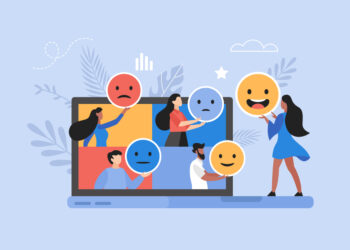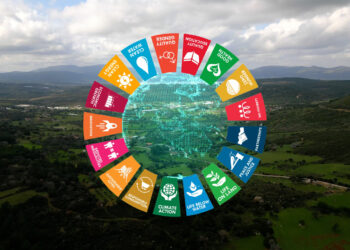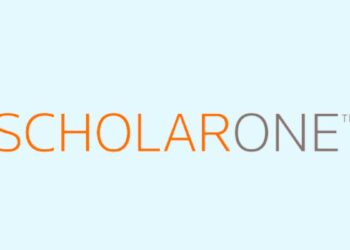Editor’s Note: Today’s post is an interview with Dr. Haseeb Irfanullah (Independant Consultant and Scholarly Kitchen Chef), Heather Staines (Senior Consultant at Delta Think and SSP President), Jesubukade Emmanuel Ajakaye (Systems Librarian at Federal Polytechnic Ayede, Past SSP Fellow, and Annual Meeting Program Committee Member), and Penelope Lewis (Chief Publishing Officer at AIPP Publishing) by the Annual Meeting Program Committee Chairs Erin Foley, Jessie Slater, and Greg Fagan. The interviews have been edited for clarity and brevity.
The deadline for submitting an Educational Session proposal for the 2025 SSP Annual Meeting is next week (4 November 11:59 PM PST). What do you want to see at the Meeting? Submit your proposal and let the SSP know!

The SSP Annual Meeting Program Committee was thrilled to announce our 2025 theme “Reimagining the Future of Scholarly Publishing at the Intersection of Value and Values” a few weeks ago, and it’s been great to see the session proposals rolling in. With one week left to go before the call for proposals closes on 4 November, we wanted to ask — what resonates with you about the 2025 SSP Annual Meeting theme?
Haseeb Irfanullah: What hit me first is the reimagining part — have we actually properly imagined the value and values of scholarly publishing in the first place? Did we imagine that open access would mean $12,000 APC costs, that articles over 6,000 words would incur $2/word overage charges, the rise of the machines, the evolution of DEIA to date? I would like to see a human-centric reimagining of the future of scholarly publishing with a focus on sustainability and resilience.
Heather Staines: I will admit that when I first saw the theme, it took some time to get my brain around the value/values part. I think about reimagining as looking at something with fresh eyes and getting new perspectives from new players, people at new points in their careers, and a new view of the landscape with all its nuances and unique aspects. From a value perspective, what resonates is that, as members of the scholarly communications industry, we have to continually prove our worth and it’s getting more challenging to make that case over time. The full breadth of things we bring to the equation might not be as visible. The more seamless we make the experience for authors and researchers, the less they may perceive our value. The mix of where our value is coming from is also shifting from purely content to a blend of content and tools. From a values perspective, we strive for inclusivity, and we really want broader participation. So many community members work for mission-driven organizations which bring the values of their members and member organizations to the table.
Jesubukade Emmanuel Ajakaye: I’m looking forward to hearing about the values that people bring to what they do. I want to hear more about early careers and how fellows can learn from other community members’ and organizations’ values.
Penelope Lewis: I really appreciate this theme — I think it captures a lot of the conversations we’re having internally and within the industry more broadly. Scholarly communications sits at this intersection of balancing value and values, and these two goals don’t need to be at cross purposes. At a time when we’re seeing less trust in science and research, we as an community need to act boldly to build this trust and truth in our industry. We have been undergoing so much change in the past few years — AI, new technologies, global pandemic, etc. At this moment, we need to reimagine the future in a way that harmonizes purpose and impact. We have an opportunity to really examine our purpose and value, collaborate more meaningfully with stakeholders inside and outside of the industry to drive progress, and demonstrate our culture principles and value in everything we do and every decision we make. SSP has made a point of bringing the moral and social purpose into the conversation in addition to the impact.
Jesubukade, as a member of the Annual Meeting Program Committee (AMPC), how did the AMPC decide on the 2025 theme, why do you think it’s important, and what makes a strong proposal?
Jesubukade: As a committee, we focused on what we want to achieve at the Annual Meeting. We had several brainstorming sessions and lots of strong theme ideas were discussed. Value and values differ on a personal, organizational, and industry-wide level depending on an individual’s experience and perspective, so reimagining the scholarly publishing ecosystem with value and values at the forefront resonated with me and the other committee members because we think it applies equally to all of our members. I especially want to hear from early career members of our community on this topic, specifically how they are learning the current values systems and adapting them for the future of the industry. A strong proposal will include clear communication of the sub-topics the session will focus on, the session objectives, and real-world examples that attendees can learn from.
Penelope and Heather, as long-time SSP attendees, what are the highlights of the Annual Meeting for you, and what do you hope to get out of the meeting in Baltimore?
Heather: Hands down, what I like most about the meeting is the people. Catching up with folks I’ve known for a long time, colleagues, former colleagues, fellow travelers, mentors, mentees. But I’m also focused on making new connections, as I put more time into mentoring. I’m looking forward to the content – how many places can you really go to get experts weighing in on the things they are passionate about? For Baltimore in particular, we have a new awards program, so being part of the conversation about the different contributions people make in our industry and how to reward those has been eye-opening. I’m looking forward to celebrating these folks and learning from this first year to evolve the program in future years.
Penelope: It’s always a highlight to reconnect with old colleagues and meet new ones. A benefit of being a small industry is that people are open to sharing their challenges and what they see on the horizon. Conversations typically continue for weeks or months after the conference. I hope Baltimore will be similarly well-attended as Boston was last year, and the proximity to DC might mean we see more funders and society publishers attending and speaking. Diversity of voices is crucial.
Haseeb, as one of The Scholarly Kitchen Chefs helping our industry stay up to date on all things scholarly publishing, what do you think the hot topics will be at the 2025 Annual Meeting?
Haseeb: We’re always focused on what is important at the moment when we’re at a conference, but we should be thinking about how to create space for discussion of what will be important in the future. How resilient is the scholarly publishing ecosystem today? What preventive/corrective measures do we need to prepare for future gaps? Sustainability, funding, integrity, AI, and mergers and acquisitions will all be important this year. I would like to see sessions taking the longer view.
Penelope, as a member of a publishing organization, do you gain insights from stakeholders you wouldn’t typically hear from at the Annual Meeting? What value does that bring to you in your role, and to our community members more broadly?
Penelope: Diversity of attendees is really what makes it valuable to attend the Annual Meetings. Nothing good or interesting ever happens at the office or in an echo chamber, and as a small industry, we can tend to be somewhat insular. Having fresh ideas and new perspectives is necessary to evolve along with the research enterprise and the needs of the broader public and society. I really believe the only way to solve the bigger challenges we’re up against is through collective action involving publishers, service providers, funders, researchers, librarians, institutions, etc. I’m often surprised at how little we know about each other’s mindset, workflows, challenges, and opportunities, so I’m keen to learn more. No one stakeholder can (or should) solve all the problems themselves, so it’s about collaboration. I’m especially interested to hear from researchers as their perspectives can sometimes be omitted.
Haseeb and Jesubukade, one significant change from 2024 is that the virtual component of the Annual Meeting will happen after the in-person event. Community members who cannot join in person can purchase discounted access to the recorded sessions and will have opportunities for live discussion of meeting topics with key speakers and attendees at a later date. What is your reaction to this new approach?
Haseeb: I think this approach is quite interesting because it seems more inclusive. Inclusion is key for a global association like SSP, and hybrid meetings are not always the best as it is hard to make it work well. This lets virtual attendees really interact with some of the key stakeholders in a more meaningful way and lets us reflect on what happened at the live meeting afterward. This will be a bit more work for some of the speakers, but I think it may work better. Maybe we can think of some follow-on activities like reflection sessions to keep the momentum going.
Jesubukade: I was a little disappointed when we learned that there wouldn’t be a hybrid meeting, but I’ve volunteered on the Virtual subcommittee [of the AMPC] to ensure the virtual component turns out well. The ability to meet with the keynote speakers last year was really valuable, and it will be good to have better recordings and slides for a better understanding of the sessions. It’s important to tell people why we are changing things- we want people to have a better user experience and be more connected.
Heather, the deadline for submitting an Educational Session proposal for the 2025 SSP Annual Meeting is next week (4 November)- as the current SSP President, why should community members submit sessions? What’s in it for them?
Heather: You shouldn’t submit a proposal because there’s something in it for you– you should submit it because there is something in it for the SSP attendees. Considered proposals take this message and look at it as an opportunity to put together a session where people can learn from the best. Folks come to share their expertise on things that are new, pose the questions that are really important to them in this complex ecosystem that we inhabit, and to learn from folks beyond the usual suspects. When you’re putting together a session or someone asks you to speak, think about it seriously. Diversity of perspective is important to us– is there someone on your team that could bring something new or better? It can take longer to identify those speakers, but it’s worth the effort. Be optimistic, and if you are not successful, resubmit to another session type at the 2025 Annual Meeting or another SSP event.



